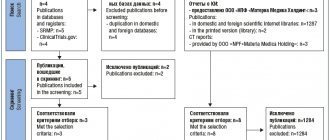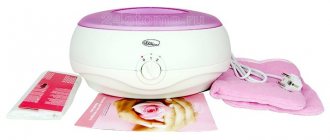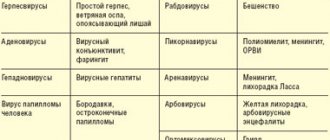Spring and autumn are the most unpredictable seasons. The only thing that repeats every year is the huge number of people who have become ill with acute respiratory infections (ARI) and acute viral diseases (ARVI) .
Symptoms of acute respiratory infections
From the first days of acute respiratory infections, the patient’s temperature rises, the throat becomes inflamed, it either becomes covered with a white coating or becomes red. A cough begins, at first dry, then turns into bronchitis with a wet cough. Mucus begins to come out of the nose, first clear, and then with pus.
ARVI symptoms
- sneezing, mucus formation;
- weakness and lethargy of the patient;
- temperature rises to 38 degrees already on the second day of illness;
- damage to the mucous membrane of the eyes and gastrointestinal tract;
- cough and runny nose become wet.
1
Consultation with a therapist in MedicCity
2 Consultation with a therapist in MedicCity
3 Consultation with a therapist in MedicCity
Causes of the disease
A sick person is a carrier of respiratory viruses. Infection occurs by airborne droplets. The likelihood of infection during an epidemic increases in places where there is a high concentration of the virus: public transport, crowded places (shops, entertainment events), schools, universities, and so on.
The following pathogens play a leading role in the etiology of respiratory infections:
- influenza and parainfluenza viruses (differ in type);
- rhinoviruses;
- adenoviruses;
- respiratory syncytial virus;
- enteroviruses;
- rotaviruses;
- picornoviruses;
- reoviruses6.
In 10-15% of cases of influenza infection during an epidemic, adenovirus is observed.
The statistics of ARVI pathogens varies depending on age. For example, respiratory syncytial and adenoviruses most often affect young children, while influenza and rhinoviruses most often affect adults.
Untimely treatment of viral respiratory infections leads to the addition of bacterial agents. This complicates the course of the disease, slows down recovery and may result in the development of complications. The main bacteria for acute respiratory infections: streptococci, pneumococci, Haemophilus influenzae, moraxella and mycoplasma.
How to bring down the temperature when you have a cold
An early sign of a cold is a rapid rise in temperature to 38-39°C. A distinctive feature is that with the flu it rises to 41°C, and there are no other symptoms. To reduce the temperature, you can use tablets, but at the stage of a slight rise, various methods of cooling the body are often sufficient.
In young children, fever can be reduced by removing clothes and diapers. Heat transfer through the skin will increase and the child will cool down. But this method works well if it is applied early, before the temperature rises to 38.5°C. Later it is used as an auxiliary method.
For children and adults, wiping the forehead, neck, and elbows with a damp cloth is effective. But if this does not help and the temperature continues to rise, you need to take an antipyretic drug. Children are allowed drugs based on paracetamol and ibuprofen; others can use any medicine from this group.
Colds begin after a cold snap. Using prevention methods, you can reduce the risk of developing pathology. But in order not to delay the start of treatment and avoid complications, it is better to buy the main drugs for prevention in advance.
How to recognize ARVI?
In the structure of respiratory infections, the leading importance is occupied by influenza viruses of types A, B, C. Every year, influenza affects at least 10% of the world's population. The clinical picture of the disease includes general symptoms:
- Fever (temperature rises sharply to febrile levels above 38 °C);
- Headache;
- Aches of muscles, bones;
- Pain in the eyes, photophobia6.
General intoxication is the predominant symptom of influenza, as opposed to other viral infections.
Damage to the respiratory tract occurs in the form of inflammatory reactions. The level of damage depends on the pathogen. In most people, several parts are affected at once, but isolated forms also occur. ARVI involves the appearance of the following types of inflammation:
- rhinitis (runny nose, swelling of the nasal mucosa);
- laryngitis (sore throat, hoarseness, barking cough, swelling of the mucous membrane);
- pharyngitis (sore throat, sore throat, hoarse voice);
- tonsillitis (sore throat, enlarged tonsils);
- tracheitis (dry cough);
- bronchitis (dry or productive cough, wheezing);
- bronchiolitis (dry or productive cough)6.
During an epidemic, the influenza virus often leads to the development of severe viral pneumonia, which is one of the dangerous complications of the disease.
The clinical picture depends on the causative agent of the respiratory disease. However, recognizing the source of infection solely by symptoms is extremely difficult. To confirm infection with a specific virus, laboratory serological diagnostic methods are used.
How to avoid getting sick in the fall
When the seasonal increase in the incidence of influenza and colds begins, it is necessary to move on to active preventive measures. They are mandatory for children and adults:
- wash your hands as often as possible - after returning home, before eating, after visiting a public toilet;
- avoid large crowds of people and travel on public transport;
- do not touch your face, nose or eyes with your hands, especially outside the home;
- ventilate the apartment several times a day;
- do regular wet cleaning.
A good way to avoid getting the flu is to get vaccinated. The vaccine is approved for use in children over 6 months of age. It is recommended for patients at risk who have weakened immune systems or who frequently come into contact with other people at work. The flu shot is given at the end of September or at the beginning of October so that immunity to the virus develops within 3 weeks. But vaccination does not prevent the development of other colds.
An effective method of prevention is rinsing the nose with salt water. It helps both prevent colds and cleanse the mucous membrane of dust particles. For rinsing, you can purchase ready-made sea salt solutions. They are available in the form of a spray, which can also be used in children.
Complications of respiratory infections
The most dangerous complication of ARVI is infectious-toxic shock. It develops in patients with influenza infection who are not receiving treatment and are often weakened. Requires immediate medical attention, but is rare outside the epidemic period.
The most common complication is the addition of a bacterial infection. The definition criterion is the duration of fever over 3-5 days with progression of clinical manifestations. In such situations, it is necessary to include antibacterial therapy.
Help prevent the development of complications:
- Seasonal prevention of acute respiratory infections;
- Maintaining immunity;
- Timely treatment of viral infections.
The problem is that patients visit doctors late - 3-4 days after the onset of ARVI, when the risk of bacteria (especially during an epidemic period) approaches 100%. Prophylactic antibiotics are not prescribed for the development of acute respiratory infections.
Prevention of acute respiratory infections and influenza
Bad weather in autumn, winter cold, and unstable weather in spring are always accompanied by acute respiratory infections (ARI) or influenza. What is the difference between ARI and influenza?
Acute respiratory infection covers a large number of diseases that are in many ways similar to each other and have a similar clinical picture to influenza, but these diseases are caused by more than 200 completely different viruses.
Influenza is an acute respiratory disease caused by several types of influenza viruses (A, B and C).
Flu is a disease that everyone is familiar with. There are practically no people who do not get the flu at least once in their lives. The flu is insidious and dangerous, first of all, due to the development of serious post-influenza complications (bronchitis, pneumonia, damage to the heart muscle, etc.), as well as the exacerbation of existing chronic diseases. Deaths cannot be ruled out. This is especially true for frail people, the elderly and children.
Ways of transmission of influenza
A person with influenza is a source of infection from the first hours of illness. The virus is transmitted by airborne droplets. When coughing, sneezing, or talking, particles of saliva, mucus, and sputum with pathogenic microflora, including influenza viruses, are expelled from the patient’s nasopharynx. Infection can occur through household items (towels, handkerchiefs, dishes).
After infection, the incubation (latent) period ranges from several hours to 1-2 days for influenza A and up to 3-4 days for influenza B.
Main flu symptoms
- the appearance of chills;
- sudden sharp increase in body temperature;
- general malaise;
- muscle pain;
- headache (mainly in the forehead);
- lethargy or agitation;
- red eyes and face;
- dry obsessive cough;
- nasal congestion with slight discharge.
Self-medication for the flu is unacceptable, especially for children and the elderly. It is impossible to predict the course of influenza, and complications can be very different. Only a doctor can correctly assess the patient’s condition. Therefore, it is necessary to immediately call a doctor at home. Patients with severe illness and complications, as well as those suffering from chronic diseases of the cardiovascular system, respiratory system and other systems are subject to hospitalization. If the doctor insists on hospitalization, you should not refuse.
For milder cases of the disease, treatment at home is possible. Medicines must be prescribed by a doctor. The doctor decides what medications are needed depending on the condition of the body. The choice and prescription of medications also depend on the signs and severity of the disease.
Patients should remain in bed during the entire febrile period to avoid complications. It is necessary to strictly follow all doctor’s recommendations and take prescribed medications in a timely manner.
The air temperature in the room where the patient is located should be 20-21ºС, and lower during sleep; Frequent ventilation makes breathing easier and reduces runny nose.
Nutrition does not require special correction. Drinking regime is of no small importance. The patient loses a lot of fluid through sweat and breathing, so he should drink a lot: tea, fruit drinks, vegetable decoctions.
The patient must be isolated for 7 days, at home - in a separate room.
Household items, dishes, and floors must be wiped with disinfectants; patient care must be carried out in a gauze (or disposable) bandage.
Prevention and protection measures
The Republic of Belarus has created a system of measures providing for comprehensive protection of the population from influenza. The comprehensive nature of protecting the population from influenza involves, first of all, specific prevention using vaccines, non-specific prevention using drugs, carrying out anti-epidemic measures in areas of infection, as well as carrying out health-improving and general strengthening measures.
Specific prevention.
The only scientifically proven effective method of preventing influenza is vaccination. Its advantages are obvious. First of all, this is the strict specificity of vaccines to the most relevant strains of the influenza virus during the season. Vaccinal prophylaxis is more than 2 times more effective than nonspecific means of prevention. It does not require significant material costs, since the vaccination is carried out once or twice (for children). Vaccines have been used for more than 50 years, during which time their safety and effectiveness have increased. All approved vaccines in the Republic of Belarus undergo laboratory quality control.
Nonspecific prevention.
It is noted that preventive maintenance therapy is also important during the period of influenza and ARI epidemics. Of course, hardened people are less susceptible to respiratory diseases. Diseases lie in wait for those who have weak defenses and immunity.
It is recommended to increase the body's defenses and engage in physical exercise. When performing exercises, the sweat released removes toxic substances. The exchange of oxygen between the circulatory system and the lungs accelerates.
is of no small importance . It is very good to take a contrast shower in the morning. But if this cannot be done, simply wash your neck, ears, and the back of your head with cold water, and then wipe yourself dry. You can wipe your entire body first with a damp and then with a dry towel. After a warm shower, it’s a good idea to wash your feet with cold water, then rub them well, put on warm socks and walk quickly for 15-20 minutes. This procedure is especially useful if you come home from the cold or feel the first signs of illness.
Not least important during the period of acute respiratory infections and influenza is proper nutrition, which has a beneficial effect on the functioning of the gastrointestinal tract and, therefore, helps eliminate harmful bacteria and microbes from the body. You should include in your diet more fruits, vegetables, herbs rich in vitamin C (cabbage, both fresh and pickled, beets, lemon, currants), enrich your dishes with plants containing a large amount of phytoncides (onions, garlic, parsley, celery).
At this time, it is advisable to increase the intake of lactic acid products. This is especially important for older people, those who suffer from chronic runny nose, bronchitis, and hay fever.
But refined products, in particular flour products made from high varieties of wheat, should be limited. For the prevention of influenza and acute respiratory infections , juices, fruit drinks, jelly from raspberries, currants, and cranberries are useful. They can be drunk instead of water without limitation throughout the day for both adults and children. Drinking should be plentiful and warm. In addition to these drinks, herbal teas with the addition of honey and lemon are very useful. Rosehip is an exceptionally useful medicinal product and antioxidant. Eating rose hips helps strengthen the immune system and improve the digestive system. Eating rose hips is especially useful in the cold season, when the body so needs vitamins and strengthening the immune system.
Rose hips contain more vitamin C than citrus fruits and black currants. It is rich in carotene, iron, potassium, phosphorus, manganese and magnesium. Rose hips contain tannins, phytoncides, organic acids and antioxidants.
should be reduced. During alcohol abuse, the immune system is suppressed. This leads to a predisposition to complications. According to statistics, people who smoke are more likely to get the flu and suffer from its complications. Tobacco smoke dries out the mucous membrane of the nasal passages and paralyzes the function of removing influenza viruses from the nose, bronchi, and lungs. Moreover, a noticeable decrease in the immune system is observed even with passive smoking (if you yourself do not smoke, but are near a person who smokes).
During this period, it is important not to get too cold. This is especially true for the legs. The body’s work is designed in such a way that it suppresses the body’s defenses. Thanks to this, viruses can easily penetrate the body. It is necessary to wear clothes and shoes appropriate for the weather.
If unexpected hypothermia occurs, it is recommended to take a hot bath or shower as soon as possible, warm your feet as much as possible and drink hot tea with lemon.
In general, viral epidemics are typical during the onset of cold weather, mainly due to the combined influence of two factors - hypothermia and a high concentration of viruses in rooms that are less ventilated compared to summer. Regular ventilation of the room is an important condition in the prevention of influenza.
Central heating dries out the mucous membranes, and as a result, the body becomes more vulnerable to ORB and influenza viruses. At work, there are often many people in the room, which leads to a large number of circulating germs.
Ventilation will improve the condition of mucous membranes and reduce germs in the air.
In order for the body to be strong, it also needs good sleep.
Don't forget about the rules of personal hygiene.
Most influenza viruses are transmitted by direct contact. For example, an infected person sneezes into his hand, then touches a telephone receiver, computer keyboard, door handle, etc. And microorganisms can live on objects from several hours to several weeks! And therefore they can easily enter the body of an uninfected person. Do not touch your nose, eyes, or mouth with unwashed hands! Hands should be washed as often as possible. If it is not possible to wash under the tap, wipe with wet wipes or it is advisable to use special antibacterial agents.
If you follow most of the above recommendations for preventing ARI and influenza, great! Nevertheless, do not tempt fate - avoid contact with people who look sick (sneezing, coughing frequently, with signs of fever).
In addition, try to avoid being in crowded places during an epidemic, and if this is not possible, then before leaving the house you need to lubricate your nasal passages with oxolinic ointment. Try not to attend public events during this period, especially those held indoors.
Follow good respiratory etiquette.
Don't be lazy, take care of yourself - you won't be afraid of colds and flu!
State institution "Grodno Zonal Center for Hygiene and Epidemiology"
Principles of combating acute respiratory infections
The fight against ARVI includes several stages:
- Seasonal prevention and vaccination;
- Emergency prevention during an epidemic;
- Emergency prevention after contact with a viral pathogen;
- Treatment of ARVI;
- Treatment of attached bacterial lesions;
- Prevention of recurrent diseases.
The basis for the prevention and treatment of influenza and acute respiratory infections are immunomodulators of various types. They are used seasonally, during emergency prevention and during the treatment stages. They can be local and systemic; their work is based on different mechanisms:
- Supply of interferon to the human body;
- Strengthening the production of your own protective substances.
Their main drawback is that they affect only the viral component of the disease, so the drugs are effective only in the first phase of ARVI (before the addition of bacterial infection).
Another group of drugs used to treat acute respiratory infections are antiviral drugs. They inhibit the growth of the virus and suppress its activity and spread. Therefore, the use of such drugs is especially important in the early stages of the disease. It is worth noting that modern antiviral agents are extremely specific to the pathogen. For example, zanamivir and oseltamivir are active against influenza viruses type A and B, but do not affect other viruses7. However, in a non-epidemic period, the influenza virus in the structure of ARVI does not exceed 10%, so the use of such drugs outside of an epidemic is doubtful1.
Antibacterial agents are used only after the addition of a bacterial pathogen. Prophylactic use “just in case” leads to the formation of resistance, which is unacceptable in modern medicine, as well as to undesirable side effects.
Symptomatic drugs are used to alleviate the condition of patients. Standard methods for reducing intoxication are also used, which is especially important for influenza: drinking plenty of fluids, bed rest, an adequate diet with a predominance of liquid and warm foods4.
Home prevention methods
Preventing colds should begin in the summer. The condition of the body depends on nutrition and the intake of vitamins. A healthy lifestyle and balanced diet will help support your immune system. To do this, you need to include vegetables and fruits, fermented milk products, and a sufficient amount of lean meat and fish in your menu.
Traditional methods of preventing ARVI recommend medicinal plants and products with an immunostimulating effect. These include:
- ginger;
- garlic;
- onion;
- lemon;
- mint;
- echinacea;
- birch mushroom.
An effective method of preventing colds is staying hydrated. An adult needs 1.5-2 liters of clean water per day. This volume supports the functioning of the kidneys, helps them quickly filter the blood and remove toxic substances, viruses and metabolic products.
Effective prevention of influenza and ARVI
Prevention of acute respiratory infections involves maintaining a healthy lifestyle, replenishing vitamin deficiencies and deficiencies of macro- and microelements. During the epidemic, it is recommended to avoid public places, wear protective masks and pay attention to wet cleaning of premises and regular ventilation.
Additional prevention includes vaccination against influenza - optional, but mandatory for people at risk, for example, with immunodeficiencies. Vaccination against streptococcus is also performed. Seasonal and emergency prophylaxis involve the use of specific immunomodulatory agents2.
What types of viruses are there?
The first thing you need to understand is that viruses can be different, and, accordingly, they require different approaches to treatment. As the department notes, more than 200 respiratory viruses are known today. Rhinoviruses are considered the most popular. They become the main causative agents of the runny nose, often called the disease of a hundred handkerchiefs. Also, the list of causative agents of colds is supplemented by such pathogens as adenoviruses, bocaviruses, metapneumoviruses and others.
Flu vaccination. What is important to know about her? More details
IRS®19 in the prevention of ARVI
IRS®19 is a local immunomodulator that is used for the treatment and prevention of respiratory infections. Available in the form of a nasal spray and approved for children over 3 months3.
Prevention of influenza and ARVI with the use of IRS®19 is due to a mixture of 18 bacterial lysates included in the drug. Lysates are breakdown products of pathogenic microorganisms that do not cause disease. They trigger a response from the human immune system, thereby increasing the body’s defenses outside of illness and accelerating recovery during infection5.
The drug is indicated at any stage of the fight against ARVI:
- Treatment of acute respiratory infections;
- Prevention of acute respiratory infections;
- Restoring defenses after acute respiratory viral infections and influenza3.
For proper use of the drug, it must be sprayed onto the cleansed nasal mucosa. People with rhinitis or sinusitis first rinse their nose and use vasoconstrictors to maximize the flow of the spray into the mucous membrane.
The drug begins to act within a few minutes after contact with the mucous membrane, causing a local immune response of the body5. This allows you to fight pathogens after contact with them during an epidemic. Adaptive (local) immunity begins to form within 2-4 weeks. The preventive effect and protection against respiratory pathogens of the antiviral drug IRS®19 lasts for three to four months8.
Daily routine and hardening
Colds and flu can be prevented with the help of hardening procedures, which begin in the summer. In childhood and untrained people, you can wipe with a damp towel, pour cool water over your feet, gradually lowering the temperature. Hardening helps improve thermoregulation; the body will not react to hypothermia with a cold.
But hardening procedures do not give an effect immediately and only when carried out regularly. If you stop dousing, after a few weeks the body will again become susceptible to disease.
To prevent colds, it is important to follow a daily routine and avoid stress. During sleep, the hormone melatonin is produced, which is involved in regulating the function and coordinated functioning of the nervous, endocrine and immune systems. An important condition is to go to bed before 23:00, do not watch TV before bed and do not use gadgets. Melatonin is produced only in complete darkness.
Main advantages of IRS®19:
- Reduces the risk of developing bacterial complications, as it simultaneously affects both the viral and bacterial components of the infection9;
- Activates the synthesis of human’s own interferon3;
- Available for use from three months of age3;
- Activates nonspecific protection of the nasal mucosa within an hour5;
- Helps reduce the duration of the disease by 3 days*5.
The drug is an addition to the treatment and prevention of acute respiratory viral infections. It does not replace antibacterial therapy and can complement other immunomodulatory agents.
Acute respiratory viral infections are the most common diseases throughout the world. It is unacceptable to underestimate their impact on the human body, since with untimely treatment and lack of prevention, the problem is aggravated by bacterial complications.
Although acute respiratory viral infections are pathologies of a viral nature, one cannot forget about the rapid (within 3-5 days) addition of bacteria. Measures to prevent influenza and ARVI should be aimed not only at the viral component, but also at the bacterial one.
A drug that affects both mechanisms of ARVI development is IRS®19. It is used as a nasal spray, causing an immediate non-specific response in the nasal mucosa. The drug promotes the production of its own interferon, triggers the formation of the body’s antibacterial response, and therefore is used both for the treatment of ARVI and for seasonal prevention3,8.
Medicines to prevent colds
The development of colds is prevented by special medications that help strengthen the immune system. You can increase the body's overall resistance with multivitamins. They improve metabolism, the reproduction of protective cells and accelerate tissue repair. Vitamins are taken in courses of several weeks with a break of 1 month.
Antiviral drugs effectively prevent the disease. They belong to the group of immunomodulators and immunostimulants and are available in the form of tablets, solutions and suppositories. To prevent colds in children, it is convenient to take syrup.
You can buy the following medications in pharmacies:
- Arbidol;
- Kagocel;
- Anaferon;
- Aflubin;
- Rimantadine;
- Kipferon;
- Oscillococcinum;
- Genferon;
- Viferon;
- Lycopid;
- Amiksin;
- Lavomax;
Tablets for the prevention of ARVI increase the production of your own interferon and antibodies, which are necessary to suppress the viral infection. Medicines should be used before contact with a person with a cold occurs and symptoms of the disease appear. This will prepare the body and avoid illness.
Is it worth getting vaccinated?
Vaccination is called one of the effective means of prevention. For example, today vaccine prevention against influenza is actively used and has shown good results. Every year the vaccine is updated in accordance with what strains are circulating and expected in the new epidemiological season.
“The Global Influenza Surveillance System, operating under the auspices of WHO, is studying these viruses. In 114 countries around the world, including Russia, there are National Influenza Centers that collect and study information in their country. Scientists isolate the virus from samples and study its genetic and antigenic properties,” the department said in a statement.
Should I take vitamins for prevention?
It is traditionally believed that during the cold season you need to add vitamins to your diet to strengthen your immune system, which should resist viruses. Rospotrebnadzor notes that to maintain their health, a person must eat properly and obtain basic vitamins and microelements from food.
You shouldn’t just use additional vitamins - you first need to get tested to determine whether there is a deficiency of nutrients and microelements. “Before buying multivitamins, you should reconsider your diet and diversify it with seasonal vegetables, fruits, herbs, fish, whole grain cereals, and unrefined vegetable oil,” the department suggests.
Flu: symptoms and prevention. Infographics Read more








